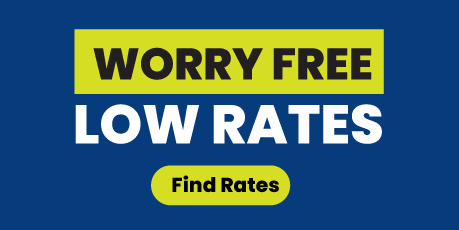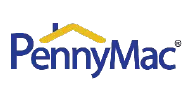Jumbo Rate and Term

A jumbo loan is any conventional loan surpassing the maximum conforming limits set by Fannie Mae and Freddie Mac - usually anything above $726,200 on single-family mortgages for the purchase price (or up to $1,089,300 for the purchase price for real estate in certain costliest areas).
The loan amount comes with additional scrutiny of the borrower's credit score and personal finances.
With Jumbo mortgages, a borrower may get more capital than non-jumbos.
A borrower may use a Jumbo mortgage to buy or refinance a primary home, second home, vacation home, or investment property.
Jumbo rate-to-term loans exceed the conforming loan limits Fannie Mae and Freddie Mac set.
Borrowers wishing to refinance to change the terms of their current jumbo mortgage rates and may change their interest rates will need to apply for a jumbo rate to term mortgage loan.
The two government-backed entities, Fannie Mae and Freddie Mac, they are responsible for buying mortgages from private lenders.
However, these entities can only purchase loans within the conforming loan limits, making it riskier for lenders to provide jumbo loans.
Consequently, borrowers often need help qualifying for these potentially more expensive types of credit.
The borrower's credit history and debt-to-income ratio must be good to exceptional.
The lender will pull the borrower's credit report, and the underwriter will review the borrower's credit history and personal finance records.
The terms of a jumbo rate to term mortgage loan allow the borrower to pay a down payment at a fixed interest rate over a while. This is usually between 15 and 30 years.
The interest rate on conventional loans may be slightly higher than with a traditional mortgage. These loans may still be an excellent option for borrowers looking to refinance a home with more funding.
The jumbo rate to term mortgages is ideal for those refinancing high-end real estate properties that exceed the loan limits of traditional mortgages.
But before the borrower decides on a jumbo rate to term mortgages, there are a few things they will need to know.
Although jumbo loans are "non-conforming" because they don't follow the FHFA loan limits, some are still considered qualified mortgages.
This means they follow a set of rules established by the Consumer Financial Protection Bureau (CFPB) to help consumers avoid excessively risky, predatory, or unaffordable loans.
The borrower will need to consider the purchase price, down payment amount, estimated closing costs, private mortgage insurance, homeowners insurance PMI, monthly mortgage payments, interest payment, property tax amount, and insurance premiums when considering the loan amount of a Jumbo rate to term home loan.
However, there are also jumbo loans that don't follow these rules, so make sure you read the fine print and ask your loan officer whether the loan you are considering is "QM" (a qualified mortgage) Non-QM loans aren't always bad, but it's best to be careful and make significant financial decisions with as much information as possible.
What are the advantages of a Jumbo Rate and Term Mortgage Loan?
The main advantage of a jumbo rate to a term mortgage loan is that it allows borrowers to refinance larger, high-end homes.
The jumbo rate to a term mortgage loan is often used for vacation homes, luxury homes, or investment properties.
Another advantage of a jumbo rate to a term mortgage loan is that it offers a fixed interest rate.
When refinancing jumbo rate to term mortgage loans, one of the most critical decisions the borrower will ever make is between fixed-rate and adjustable-rate mortgages.
Jumbo mortgages allow the borrower to know their monthly payment, allowing them to set their monthly budget with stability.
What are the disadvantages of a Jumbo Rate and Term Mortgage Loan?
The main advantage of a jumbo rate to a term mortgage loan is that it allows borrowers to refinance larger, high-end homes.
The jumbo rate to a term mortgage loan is often used for vacation homes, luxury homes, or investment properties.
Another advantage of a jumbo rate to a term mortgage loan is that it offers a fixed interest rate.
When refinancing jumbo rate to term mortgage loans, one of the most critical decisions the borrower will ever make is between fixed-rate and adjustable-rate mortgages.
Jumbo mortgages allow the borrower to know their monthly payment, allowing them to set their monthly budget with stability.
Is a Jumbo Rate and Term Mortgage Loan right for most borrowers?
The borrower may need to decide whether or not to choose a jumbo rate to a term mortgage loan; this may be a difficult decision. They should consider the following.
The borrower will need to evaluate the mortgage rates and their financial situation. What is their credit score? Are they able to make a large down payment?
If so, then a jumbo rate to-term mortgage loan may be a good choice for them to make.
Is the property the borrower wants to refinance a high-end property that may require a more significant loan amount? The jumbo rate to term mortgage may be the borrower's only option to refinance their mortgage loan, especially depending on the price of the mortgage.
Jumbo rate-to-term mortgages are characterized by high loan amounts and interest rates.
Closing costs for such mortgages are not fixed and vary depending on various factors, such as the property location and size of the loan.
Typical closing costs include upfront mortgage premium insurance (PMI), monthly mortgage fee, property taxes, and interest payments.
Apart from these, keeping an eye on tax monitoring and transfer taxes is essential.
Fees vary for mortgages and often include origination fees, underwriting fees, and lender's title insurance.
Therefore, one should assess their financial situation carefully and opt for a mortgage that suits their requirements.
Understanding the terms and conditions of jumbo rate to term mortgages is crucial.
Mortgage Closing Costs:
Closing costs are processing fees the borrower must pay their lender. Lenders charge these fees in exchange for producing their loans.
Closing costs cover your home appraisal and searches on your home's title.
The specific closing costs the borrower will need to pay depend on the type of loan and the area where they live.
When obtaining a jumbo rate term loan, borrowers should be aware of the various closing costs associated with the process.
These costs include upfront mortgage insurance premiums, monthly mortgage payments, fees, property taxes, interest payments, credit report fees, and more.
The average closing costs for a jumbo loan can range from 2% to 5% of the total loan amount.
However, borrowers may reduce these costs by purchasing discount points, which allow them to pay a portion of their interest upfront.
In addition to the costs mentioned above, borrowers must also consider other fees and expenses such as homeowners insurance, title insurance costs, underwriting fee, and owner's title insurance.
The loan estimate provided by the lender should estimate the estimated closing costs associated with the loan.
The closing date will be agreed upon by both the borrower and the lender. The borrower must pay property taxes and other closing costs by this date.
The borrower's real estate agent may also help borrowers navigate the closing process and may be able to negotiate some of the closing costs.
Hiring the best real estate agent is crucial when purchasing a new home. Their expertise may be the key to lower prices.
One discount point is equivalent to 1% of the total loan amount, and the discount points can help cover closing costs.
Borrowers must carefully review their loan estimates and ask questions about fees or costs they do not understand.
With proper planning and budgeting, borrowers may manage the various expenses of obtaining a jumbo-rate term loan.
The borrower's down payment isn't the only thing they need to bring when closing on a home.
Closing costs are expenses the borrower pays to their lender in exchange for loan services.
Many first-time home buyers need to pay more attention to how much they'll need to pay in closing costs.
Some may need to learn there are ways to lower how much you'll pay.
Understanding closing costs can be challenging.
We'll give you an overview of everything you need to know about closing costs before you finalize your loan.
Closing costs cover your home appraisal and searches on your home's title.
The specific closing costs the borrower will need to pay depend on the loan type amount of loan they take, and where they live.
Closing Costs Calculator:
What is the formula for Closing Costs?
Most lenders recommend estimating your closing fees to be between one percent and five percent of the home purchase price to calculate your closing costs.
For Example:
If a borrower purchases their house for $300,000, they may estimate their total closing costs to be between $3,000 and $15,000.
Attorney Fees
Some homebuyers will use an attorney to review their paperwork.
This helps ensure that everything is in order. In some states, an attorney must legally close a home. Attorney fees usually only amount to a few hundred dollars. Escrow account funds
What is an Escrow Account?
An Escrow Account is a legal arrangement in which a title company temporarily holds the money until a particular condition has been met.
In real estate, it may be an amount of money placed in an account at the title company to show good faith.
The money will be taken from the escrow accounts and added to the closing costs as monies paid.
Local Government Fees:
Government recording charges are fees assessed by state and local government agencies for legally recording your deed, mortgage and documents related to a borrower's home loan. The fee covers all of the government fees and taxes.
What is the max Loan to Value to avoid PMI?
The lender must automatically end PMI when your mortgage balance reaches 78 percent of the original purchase price — when your loan-to-value (LTV) ratio drops to 78 percent.
This is provided if the borrower is in good standing, has been on time, or missed any mortgage payments.
What is the guarantee fee?
The fee covers projected credit losses from borrowers' defaults over the life of loans, administrative costs, and a return on capital.
Who pays the guarantee fee?
The lender typically charges the borrower the cost of an upfront fee in the form of a slightly higher interest rate on the mortgage, as most borrowers tend to choose not to pay points.
Ongoing fees are also included in the interest rate charged to the borrower.
What is Title Insurance?
Title insurance is a legal document that protects against losses when a title to a property is not free and clear of defects.
For Example:
Liens:
The right to keep possession of another person's property until a debt owed by that person is discharged and paid.
Encumbrances:
Encumbrances affect title, meaning that the owner's rights to the property are limited in some way. Those limitations sometimes continue even if the property is purchased by someone else.
Conclusion of Jumbo Rate and Term Mortgage Loans:
In summary, a jumbo rate to-term mortgage may be an excellent option for borrowers refinancing a high-end property that requires a more significant loan amount than traditional mortgages.
While there are certainly advantages to this type of loan, it is essential for borrowers to carefully evaluate their financial situation and property before making a decision.
Suppose a jumbo rate to-term mortgage is suitable for the borrower. In that case, they will need to work with a reputable lender who can guide them through the process and help them make an informed decision.
The borrower must ensure their monthly payments fit into their budget.
With the proper guidance and knowledge, a jumbo rate to-term mortgage can be a great way to refinance their home.
Frequently Asked Questions?
Q: How much can I borrow with a jumbo mortgage?
A: The amount you can borrow will depend on your individual credit score, income level, debt-to-income ratio, and other factors. Generally speaking, the maximum amount for a jumbo loan is $2 million or more.
Q: What are the advantages of taking out a jumbo rate and term mortgage loan?
A: Jumbo rate to term mortgages provide borrowers with access to larger amounts of financing at competitive interest rates when compared to short-term mortgages. They also offer more flexibility in repayment options over long periods of time which may lower monthly payments for borrowers in certain situations.
Q: What is a jumbo rate and term mortgage loan?
A: A jumbo rate to term mortgage loan is a type of home loan that exceeds the conforming limits set by Fannie Mae and Freddie Mac. It typically offers longer terms than conventional loans and has higher interest rates.
Please read through this information, and if you have questions, we are here to assist.
Our expert mortgage officers are available to assist with any questions.
Please call us at 1-866-713-9292 or apply online.







